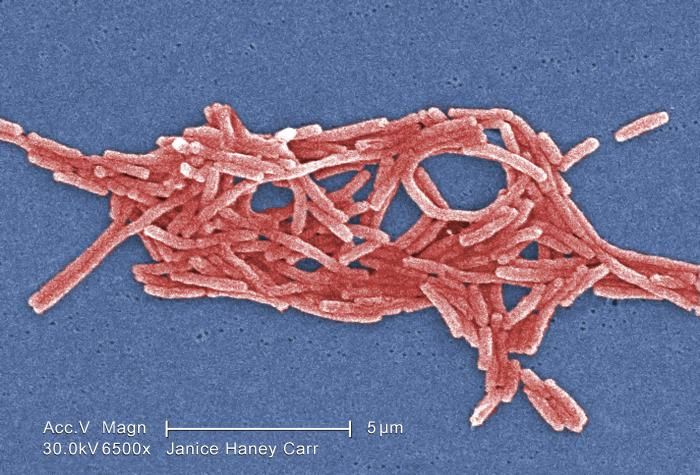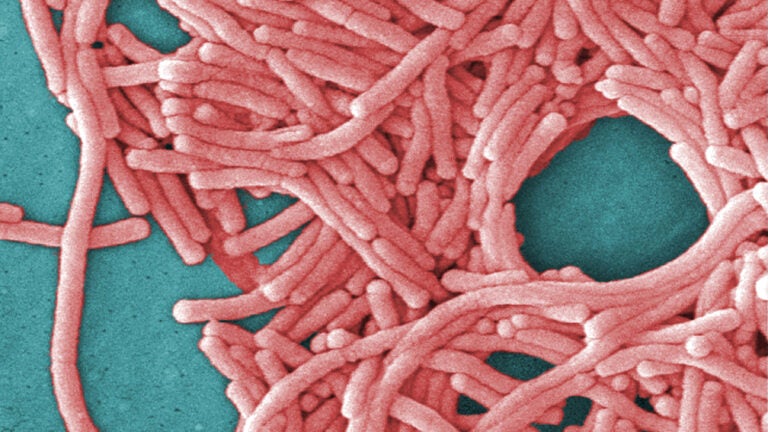Legionnaires’ Disease in Lincoln, NH

Legionnaires’ disease is a severe form of pneumonia caused by the bacterium Legionella. It is typically contracted by inhaling contaminated water droplets, often from cooling towers, air conditioners, or water systems.
Cause, Symptoms, and Transmission
Legionnaires’ disease is caused by the bacterium *Legionella pneumophila*, which thrives in warm water environments. The bacteria can be found in various sources, including:
- Cooling towers
- Air conditioners
- Hot tubs and spas
- Water fountains
- Showerheads
The bacteria are released into the air as small droplets of water, which can then be inhaled by people.
Symptoms of Legionnaires’ disease usually appear 2 to 10 days after exposure and can include:
- High fever
- Cough
- Muscle aches
- Headache
- Shortness of breath
- Chest pain
- Diarrhea
- Confusion
In severe cases, Legionnaires’ disease can be fatal, particularly for individuals with weakened immune systems.
History of Outbreaks in Lincoln, NH
There have been no reported outbreaks of Legionnaires’ disease in Lincoln, NH, to date. However, it is important to note that the disease can occur anywhere where Legionella bacteria are present.
Incidence of Legionnaires’ Disease in Lincoln, NH
Unfortunately, specific data on the incidence of Legionnaires’ disease in Lincoln, NH, is not readily available. The New Hampshire Department of Health and Human Services (DHHS) does not publicly release data on Legionnaires’ disease cases by specific town or city.
However, the national incidence of Legionnaires’ disease is estimated to be around 8,000 to 18,000 cases per year. In New Hampshire, the average number of cases reported annually is around 20 to 30.
It is important to remember that these figures represent only reported cases. The actual number of Legionnaires’ disease cases is likely higher, as many cases go undiagnosed or unreported.
Potential Sources of Legionnaires’ Disease in Lincoln, NH

Lincoln, NH, like many other communities, is susceptible to Legionnaires’ disease outbreaks due to the presence of potential sources of Legionella bacteria. These sources, often found in water systems, cooling towers, and HVAC systems, can harbor the bacteria and facilitate its spread. Understanding these potential sources and their associated risks is crucial for implementing effective preventative measures and mitigating the risk of outbreaks.
Water Systems
Water systems, particularly those with stagnant water or inadequate disinfection practices, can provide a breeding ground for Legionella bacteria.
- Municipal Water Systems: While municipal water systems typically maintain high levels of disinfection, aging infrastructure, low water pressure, and infrequent maintenance can create conditions favorable for Legionella growth.
- Private Wells: Private wells, lacking the same level of regulation as municipal systems, can be vulnerable to contamination. Factors such as well depth, water temperature, and the presence of sediment can increase the risk of Legionella growth.
- Hot Water Systems: Hot water systems, especially those with temperatures below 120°F (49°C), can provide a suitable environment for Legionella. The bacteria can proliferate in water heaters, pipes, and fixtures, particularly in older systems with inadequate maintenance.
- Cooling Towers: Cooling towers, used in various industrial and commercial facilities, are known to be significant sources of Legionella. These systems often contain warm water, providing an ideal environment for the bacteria to thrive. Improper maintenance, such as inadequate chlorination levels or infrequent cleaning, can lead to Legionella contamination.
HVAC Systems
HVAC systems, including air conditioners and humidifiers, can also contribute to the spread of Legionnaires’ disease.
- Air Conditioners: Evaporative condensers in air conditioners can accumulate water, providing a breeding ground for Legionella. Inadequate maintenance, such as infrequent cleaning or malfunctioning components, can increase the risk of contamination.
- Humidifiers: Humidifiers, especially those with water tanks, can become contaminated with Legionella bacteria. Inadequate cleaning and maintenance, along with the use of unfiltered water, can increase the risk of spreading the bacteria through aerosolized droplets.
Environmental Factors
Several environmental factors specific to Lincoln, NH, can contribute to the risk of Legionnaires’ disease.
- Climate: Lincoln’s humid summers and cool winters can create favorable conditions for Legionella growth. The bacteria thrive in temperatures between 77°F (25°C) and 113°F (45°C), making warm, humid environments ideal for their proliferation.
- Water Quality: The presence of sediment, minerals, or other contaminants in water systems can increase the risk of Legionella growth.
- Infrastructure: Lincoln’s aging infrastructure, including water systems and HVAC systems, can contribute to the risk of Legionnaires’ disease. Outdated plumbing, poorly maintained cooling towers, and malfunctioning HVAC components can create conditions favorable for Legionella growth and spread.
Public Health Response to Legionnaires’ Disease in Lincoln, NH: Lincoln Nh Legionnaires Disease

The outbreak of Legionnaires’ disease in Lincoln, NH, prompted a swift and comprehensive public health response aimed at containing the spread of the disease, identifying the source, and providing support to affected individuals. The local health department played a pivotal role in coordinating and implementing these measures.
Role of the Local Health Department
The local health department in Lincoln, NH, assumed a crucial role in responding to the Legionnaires’ disease outbreak. Their responsibilities included:
- Case Investigation and Contact Tracing: The health department conducted thorough investigations to identify all confirmed and suspected cases of Legionnaires’ disease. This involved interviewing patients, collecting medical records, and tracing their contacts to identify potential exposures.
- Source Identification: Working closely with state and federal agencies, the health department conducted environmental investigations to identify the source of the Legionnaires’ disease outbreak. This included inspecting potential sources of contamination, such as water systems, cooling towers, and other water-related facilities.
- Public Health Messaging: The health department disseminated public health information to the community about the outbreak, the symptoms of Legionnaires’ disease, and preventive measures. This included issuing press releases, using social media, and distributing flyers and brochures.
- Outbreak Control Measures: The health department implemented public health measures to control the spread of Legionnaires’ disease, such as advising the public to avoid using contaminated water sources, recommending disinfection of water systems, and ensuring that cooling towers were properly maintained.
- Resource Coordination: The health department coordinated resources for individuals diagnosed with Legionnaires’ disease, including access to medical care, support services, and information about the disease.
Public Health Measures, Lincoln nh legionnaires disease
To prevent and control Legionnaires’ disease in Lincoln, NH, the health department implemented a range of public health measures, including:
- Water System Disinfection: The health department advised building owners and managers to disinfect their water systems, including hot water tanks, showerheads, and faucets. This involved flushing the water system with a bleach solution to kill any Legionella bacteria present.
- Cooling Tower Maintenance: The health department emphasized the importance of regular maintenance and disinfection of cooling towers. This included ensuring that cooling towers were properly designed, operated, and maintained to prevent the growth of Legionella bacteria.
- Public Awareness Campaigns: The health department conducted public awareness campaigns to educate the community about Legionnaires’ disease, its symptoms, and preventive measures. This included distributing brochures, holding public meetings, and using social media to spread information.
- Surveillance and Monitoring: The health department continued to monitor the situation closely, conducting surveillance to track the number of Legionnaires’ disease cases and identify any potential outbreaks.
Resources and Support for Individuals
Individuals diagnosed with Legionnaires’ disease in Lincoln, NH, had access to a range of resources and support services, including:
- Medical Care: The health department provided information and referrals to local healthcare providers who were experienced in treating Legionnaires’ disease.
- Support Services: The health department connected individuals with support services, such as home healthcare, transportation assistance, and emotional support groups.
- Information and Resources: The health department provided individuals with information about Legionnaires’ disease, its causes, symptoms, and treatment options. This included access to websites, brochures, and other materials.
Lincoln nh legionnaires disease – The outbreak of Legionnaires’ disease in Lincoln, NH, brought a stark reminder of the fragility of public health. It’s a chilling echo of the constant tension that simmers between nations, like the ongoing conflict between Israel and Iran , where a single spark could ignite a devastating fire.
In Lincoln, the disease spread through a contaminated water source, a silent, invisible threat. Just as we must be vigilant against such outbreaks, so too must we strive for peace and understanding in a world where conflict lurks just beneath the surface.
The outbreak of Legionnaires’ disease in Lincoln, New Hampshire, brought a chilling reminder of the vulnerability of our communities to invisible threats. It’s a stark contrast to the palpable tension that grips the world as we watch the escalating conflict between Iran and Israel, a situation that could easily erupt into something far more dangerous.
Iran’s recent threats against Israel highlight the precariousness of peace, a fragile concept that can be shattered by a single miscalculation. Just as the Legionnaires’ outbreak underscored the importance of public health measures, the Iranian-Israeli conflict reminds us that global stability rests on a delicate balance.
